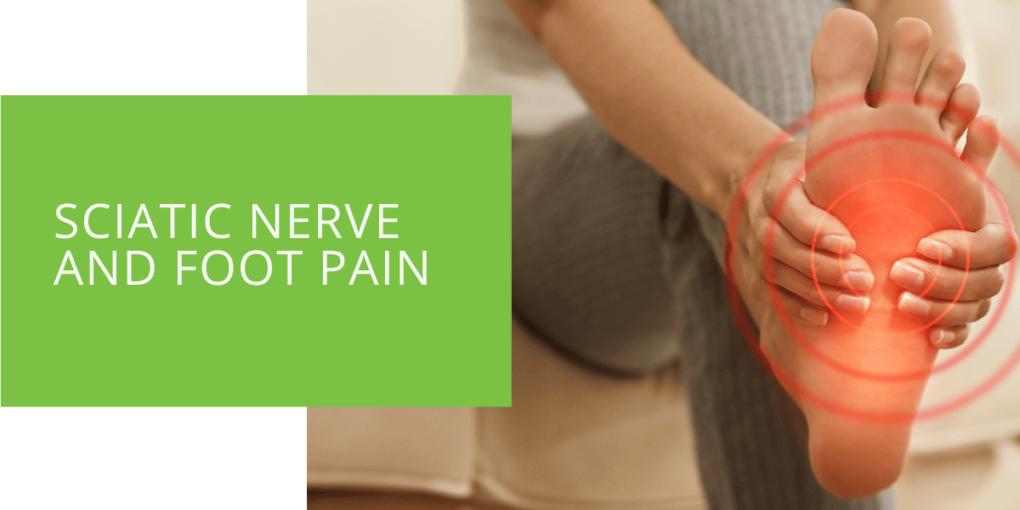Sciatic Nerve and Foot Pain
If you've ever experienced shooting pain or numbness in your feet, it may be due to the sciatic nerve. The sciatic nerve is the longest in the human body, stretching from the lower back to the toes. When this nerve becomes compressed or irritated, it can cause pain and discomfort, including foot pain. This article will discuss the connection between sciatic nerve pain and foot pain, its causes, symptoms, and treatments.
What is the Sciatic Nerve?
The sciatic nerve is the largest and longest nerve in the body, originating from the lower back and extending down to the toes. It provides sensation and movement to the legs, feet, and toes. Any pressure or compression on the sciatic nerve can cause pain, numbness, or weakness in the affected area.
How Does the Sciatic Nerve Affect Foot Health?
The sciatic nerve plays a crucial role in foot health as it controls the muscles that move the feet, toes, and ankle. When the sciatic nerve is compressed or irritated, it can cause foot pain and other related symptoms. The nerve compression can result from a herniated disc, bone spur, spinal stenosis, or piriformis syndrome.
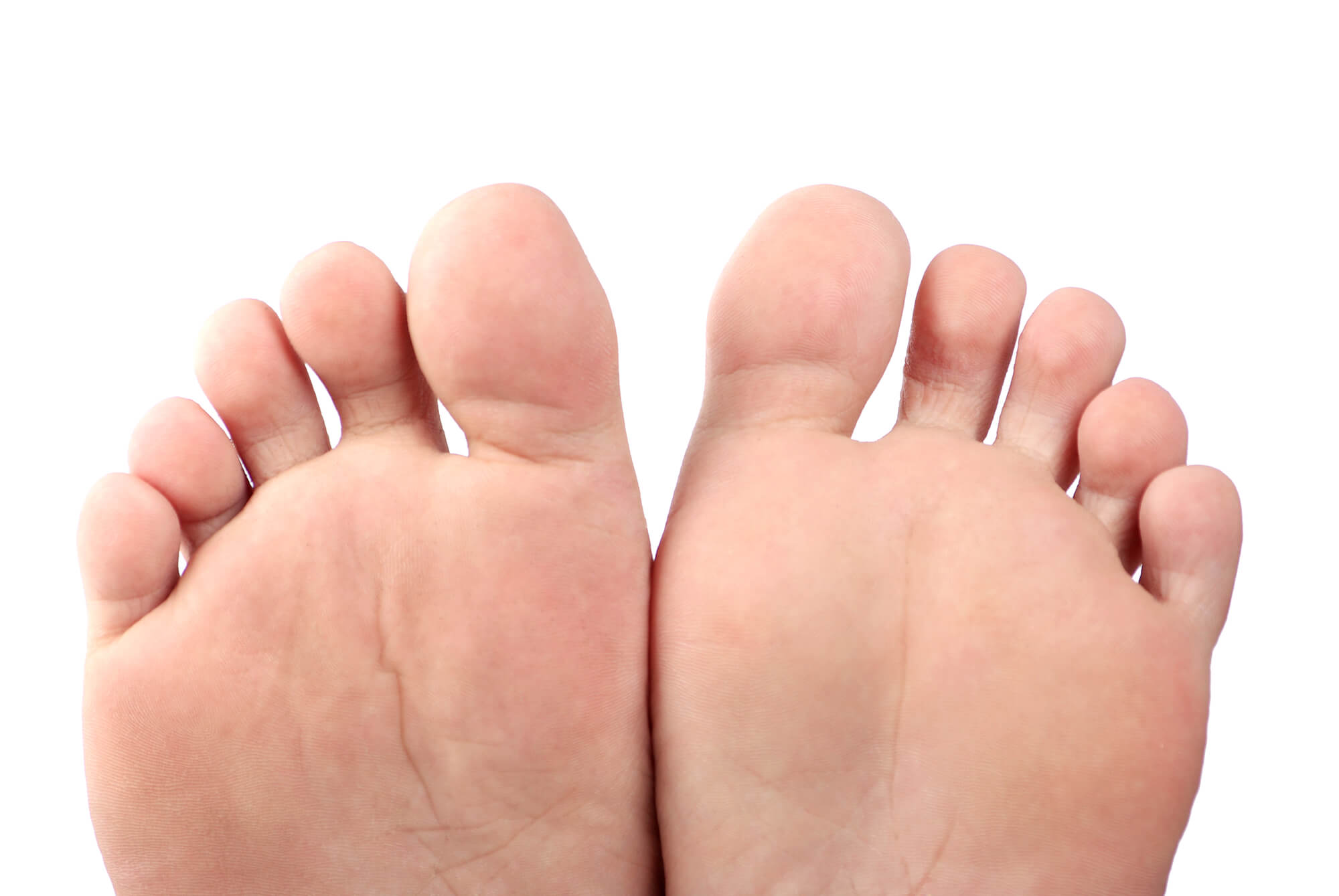
Causes of Sciatic Nerve Pain that Affects the Feet
Sciatic nerve pain that affects the feet can be caused by various conditions that compress or irritate the sciatic nerve. Some of the most common causes of sciatic nerve pain that affects the feet include:
Herniated Discs
Herniated discs occur when the soft, gel-like center of the spinal disc bulges or ruptures through a weak spot in the disc's outer layer. When this happens, the displaced disc material can press against the sciatic nerve, causing pain and discomfort in the lower back, buttocks, legs, and feet. Herniated discs are a common cause of sciatic nerve pain that affects the feet, and they can be caused by age-related wear and tear, repetitive stress, or trauma to the spine.
Spinal Stenosis
Spinal stenosis is a condition that causes the spinal canal to narrow, putting pressure on the spinal cord and the sciatic nerve roots that branch off from it. This pressure can cause pain, numbness, and tingling in the legs and feet, especially when standing or walking. Spinal stenosis is more common in older adults and can be caused by age-related changes in the spine, such as arthritis or degenerative disc disease.
Piriformis Syndrome
Piriformis syndrome is a condition that occurs when the piriformis muscle, located in the buttocks, becomes tight or inflamed and presses against the sciatic nerve. This pressure can cause pain, numbness, tingling in the legs and feet, and difficulty walking or sitting. Piriformis syndrome can be caused by trauma or injury to the buttocks, repetitive motions that strain the muscle, or muscle imbalances.
Trauma or Injury to the Lower Back
Trauma or injury to the lower back, such as a fall, car accident, or sports injury, can damage the spinal cord, nerves, or muscles in the back, causing sciatic nerve pain that affects the feet. This type of pain can be sudden or develop gradually over time, depending on the extent of the injury.
Diabetes and Neuropathy
Diabetes is a chronic condition that affects the body's ability to regulate blood sugar levels. Over time, high blood sugar levels can damage the nerves, including the sciatic nerve, leading to pain, numbness, and tingling in the legs and feet. This type of pain is often referred to as diabetic neuropathy and can be managed with proper diabetes management and treatment.
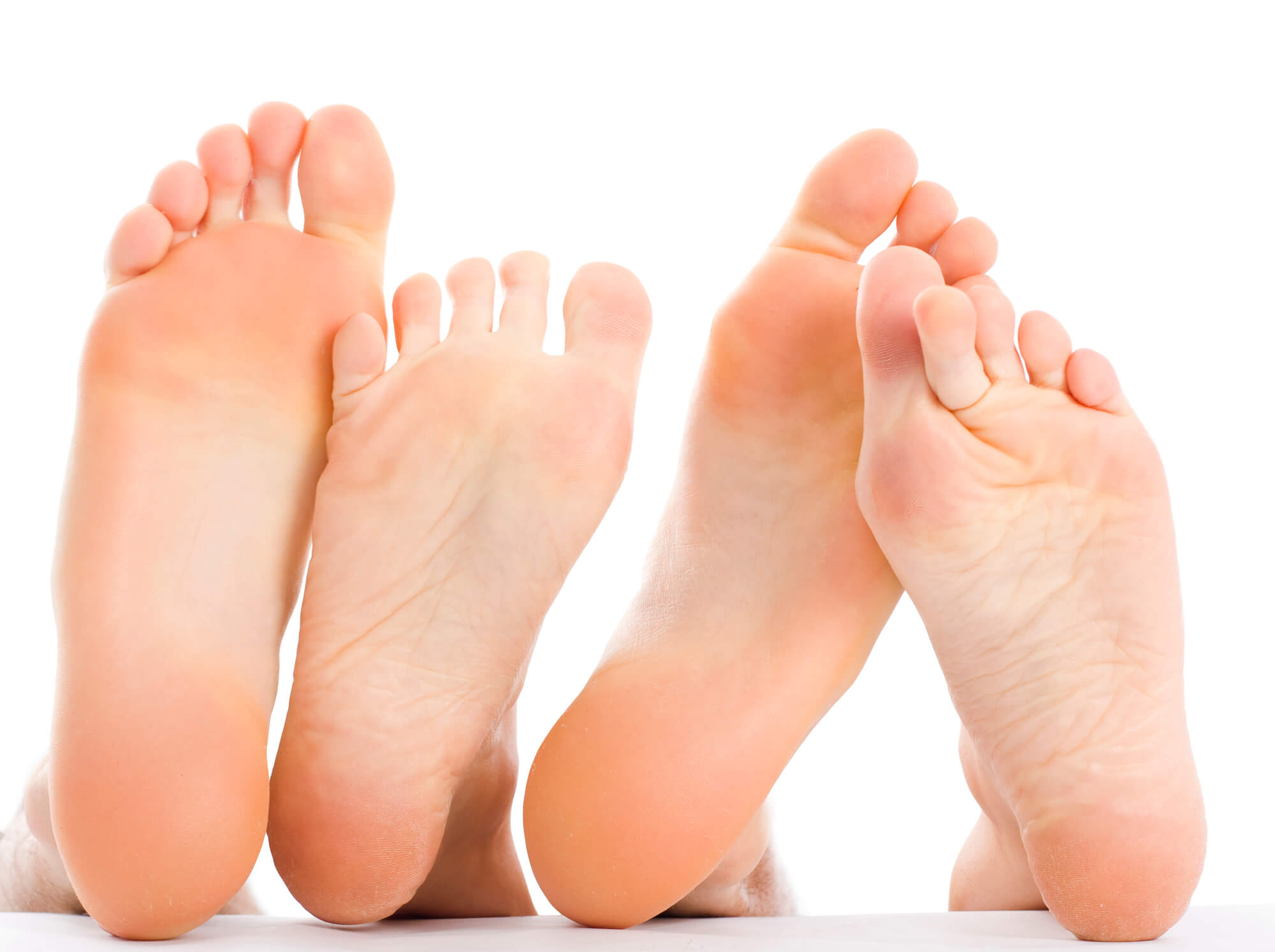
Symptoms of Sciatic Nerve Pain in the Feet
Sciatic nerve pain in the feet can present with various symptoms, ranging from mild discomfort to severe pain that interferes with daily activities. Some common symptoms of sciatic nerve pain in the feet include:
Numbness or Tingling Sensation
Numbness or tingling sensation in the feet is a common symptom of sciatic nerve pain. This sensation can feel like pins and needles or a loss of sensation in the affected foot or toes. Other symptoms, such as pain or weakness, can accompany numbness or tingling sensation.
Shooting Pain
Shooting pain is another common symptom of sciatic nerve pain that affects the feet. This pain can range from a mild ache to a sharp, stabbing sensation radiating from the lower back to the toes. Shooting pain can be triggered by certain activities, such as walking or standing for long periods, or sudden movements, such as bending or twisting.
Weakness or Difficulty Moving the Foot
Weakness or difficulty moving the foot is a less common symptom of sciatic nerve pain that affects the feet, but it can be a sign of more severe nerve compression or damage. This symptom can manifest as a feeling of heaviness or numbness in the affected foot or as difficulty moving the foot or toes. Weakness or difficulty moving the foot can make it difficult to perform daily activities, such as walking or standing.
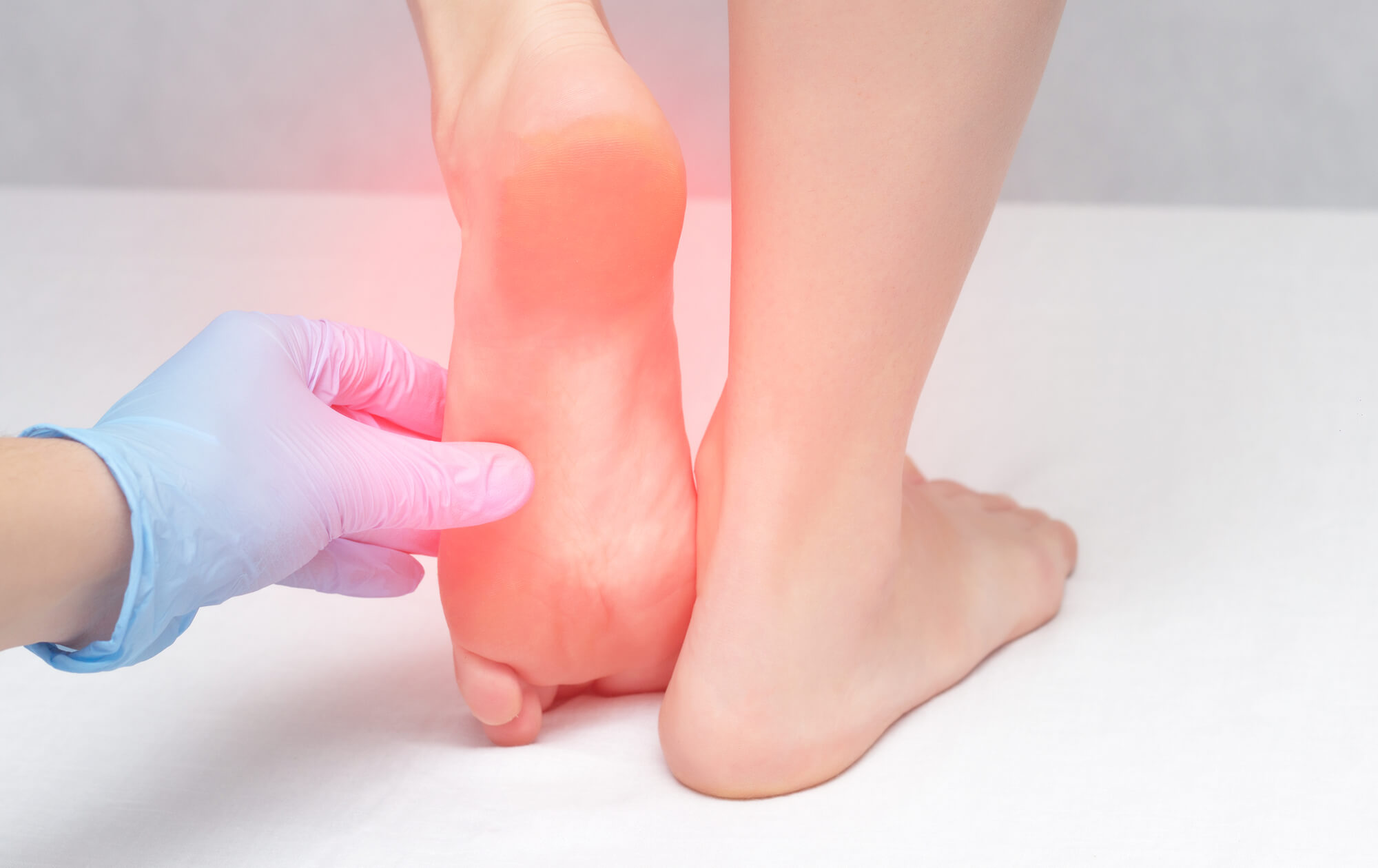
Diagnosis and Treatment of Sciatic Nerve Pain in the Feet
Sciatic nerve pain that affects the feet can be diagnosed and treated with various methods. The diagnosis and treatment typically involve a combination of medical history review, physical examination, and imaging tests. Treatment options can range from medication and therapy to surgery, depending on the severity and underlying cause of the condition.
Physical Examination and Medical History
Diagnosing sciatic nerve pain that affects the feet usually begins with a physical examination and medical history review. The healthcare provider will ask about the patient's symptoms, medical history, and any underlying conditions contributing to the pain. The healthcare provider may also perform a physical examination to check for reflexes, muscle strength, and range of motion in the affected foot.
Imaging Tests such as X-rays, MRI, or CT Scans
Imaging tests such as X-rays, MRI, or CT scans can help determine the underlying cause of sciatic nerve pain that affects the feet. X-rays can provide images of bones in the spine and legs to check for fractures or bone spurs. MRI or CT scans can provide more detailed images of soft tissues, such as muscles, nerves, and discs in the spine, to check for herniated discs, spinal stenosis, or other conditions that may be compressing the sciatic nerve.
Medications and Therapy
Medications and therapy can help alleviate sciatic nerve pain that affects the feet. Over-the-counter pain medications such as acetaminophen, ibuprofen, or naproxen can help relieve pain and inflammation. Medications such as muscle relaxants, antidepressants, or anticonvulsants may also be prescribed to alleviate nerve pain.
Physical therapy can help strengthen muscles in the legs and feet, improve flexibility, and alleviate pressure on the sciatic nerve. This therapy can involve exercises, stretches, massages, and other techniques to reduce pain and improve mobility. In some cases, chiropractic or acupuncture treatments may also be recommended.
Surgery
Surgery may be necessary for severe sciatic nerve pain affecting the feet. Surgery can involve removing a herniated disc or bone spur, compressing the sciatic nerve, or enlarging the spinal canal to alleviate pressure on the nerve root. Surgery is usually considered a last resort and is only recommended if other treatments have been unsuccessful.
Overall, the diagnosis and treatment of sciatic nerve pain that affects the feet can vary depending on the underlying cause and severity of the condition. It's important to seek medical attention if you're experiencing foot pain or other symptoms of sciatic nerve pain to receive an accurate diagnosis and treatment plan. With proper diagnosis and treatment, individuals can alleviate their foot pain and improve their overall quality of life.
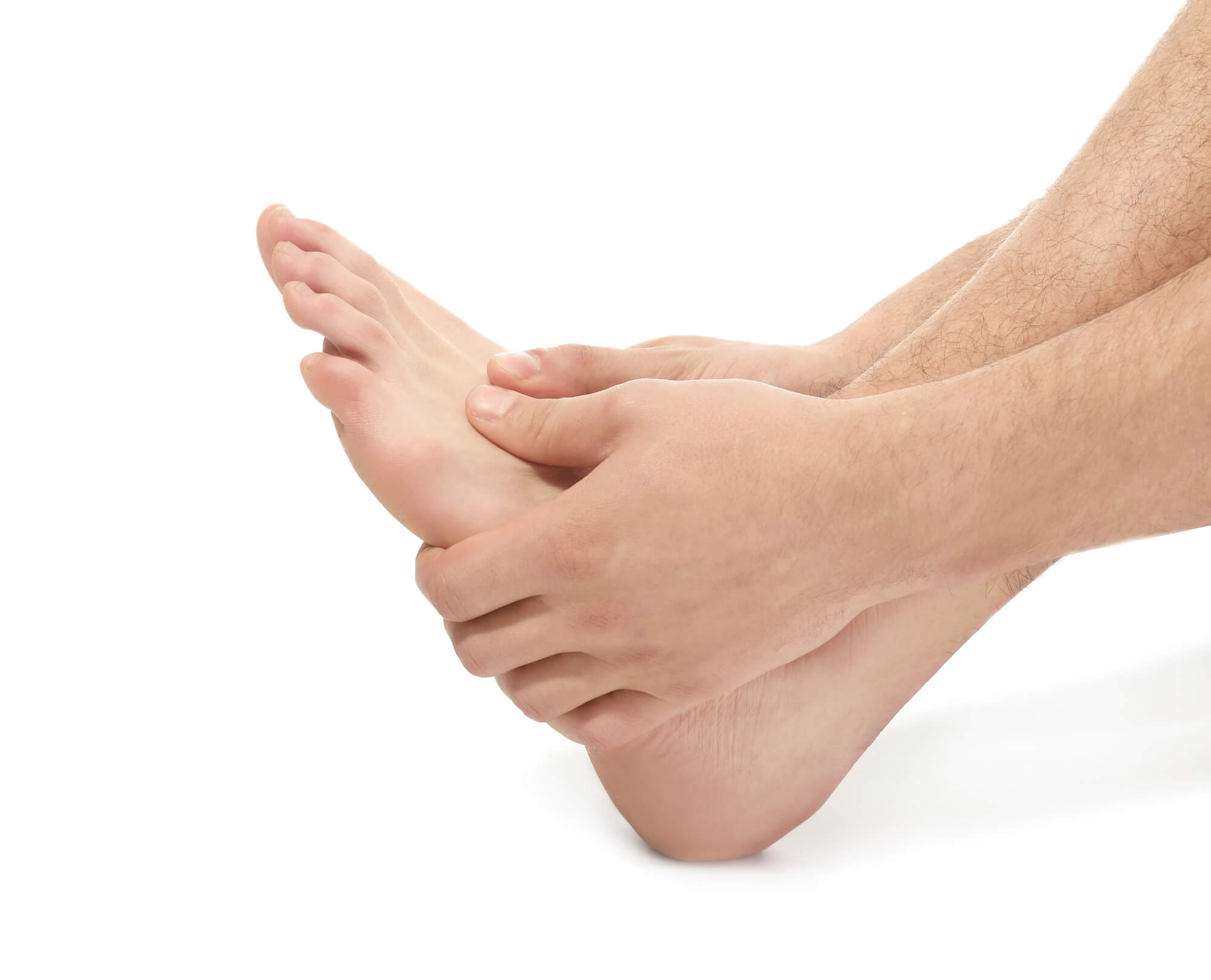
Prevention of Sciatic Nerve Pain in the Feet
Prevention of sciatic nerve pain that affects the feet is possible by taking several measures to maintain good foot health. The following tips can help prevent sciatic nerve pain and related symptoms:
Exercise and Stretching
Regular exercise and stretching can help maintain good posture and alleviate pressure on the nerve root. Walking, swimming, or cycling can strengthen muscles in the legs and feet, improve flexibility, and reduce the risk of developing sciatica. Stretching can help maintain flexibility and reduce muscle tension in the back, buttocks, and legs, contributing to sciatic nerve pain.
Proper Footwear
Proper footwear can help support the feet and promote good posture, reducing the risk of developing sciatica. Shoes with good arch support, cushioning, and shock absorption can help alleviate pressure on the feet and reduce the risk of injury or inflammation. Avoid wearing high heels or shoes that are too tight, as they can compress the sciatic nerve and cause foot pain.
Healthy Weight Management
Maintaining a healthy weight can reduce the risk of developing sciatic nerve pain that affects the feet. Excess weight can put pressure on the spine and contribute to developing sciatica. By maintaining a healthy weight through a balanced diet and regular exercise, individuals can reduce the risk of developing sciatic nerve pain.
Avoid Activities that Cause Back Pain
Avoiding activities that cause back pain can reduce the risk of developing sciatic nerve pain that affects the feet. Repetitive motions, such as lifting heavy objects, twisting, or bending, can strain the muscles and nerves in the back, leading to sciatic nerve pain. Avoiding these activities or using proper lifting techniques can reduce the risk of developing sciatica.
By following these tips, individuals can reduce the risk of developing sciatic nerve pain that affects the feet. It's important to maintain good foot health and seek medical attention if you're experiencing foot pain or other symptoms of sciatic nerve pain. Individuals can maintain good foot health and improve their overall quality of life by taking preventive measures and seeking treatment when necessary.
Conclusion
Sciatic nerve pain that affects the feet can be debilitating but treatable. By understanding this condition's causes, symptoms, and treatments, individuals can take preventive measures to maintain good foot health. If you're experiencing foot pain or other symptoms of sciatica, don't hesitate to seek professional help to diagnose and treat the condition. Ignoring foot pain caused by the sciatic nerve can lead to further complications and discomfort, so it's important to take action as soon as possible.
Overall, it's important to know the connection between the sciatic nerve and foot pain. The sciatic nerve plays a crucial role in foot health, and when it becomes compressed or irritated, it can cause a wide range of symptoms, including foot pain. By understanding the causes, symptoms, and treatments for sciatic nerve pain that affects the feet, individuals can take preventive measures to maintain good foot health and improve their overall quality of life.

